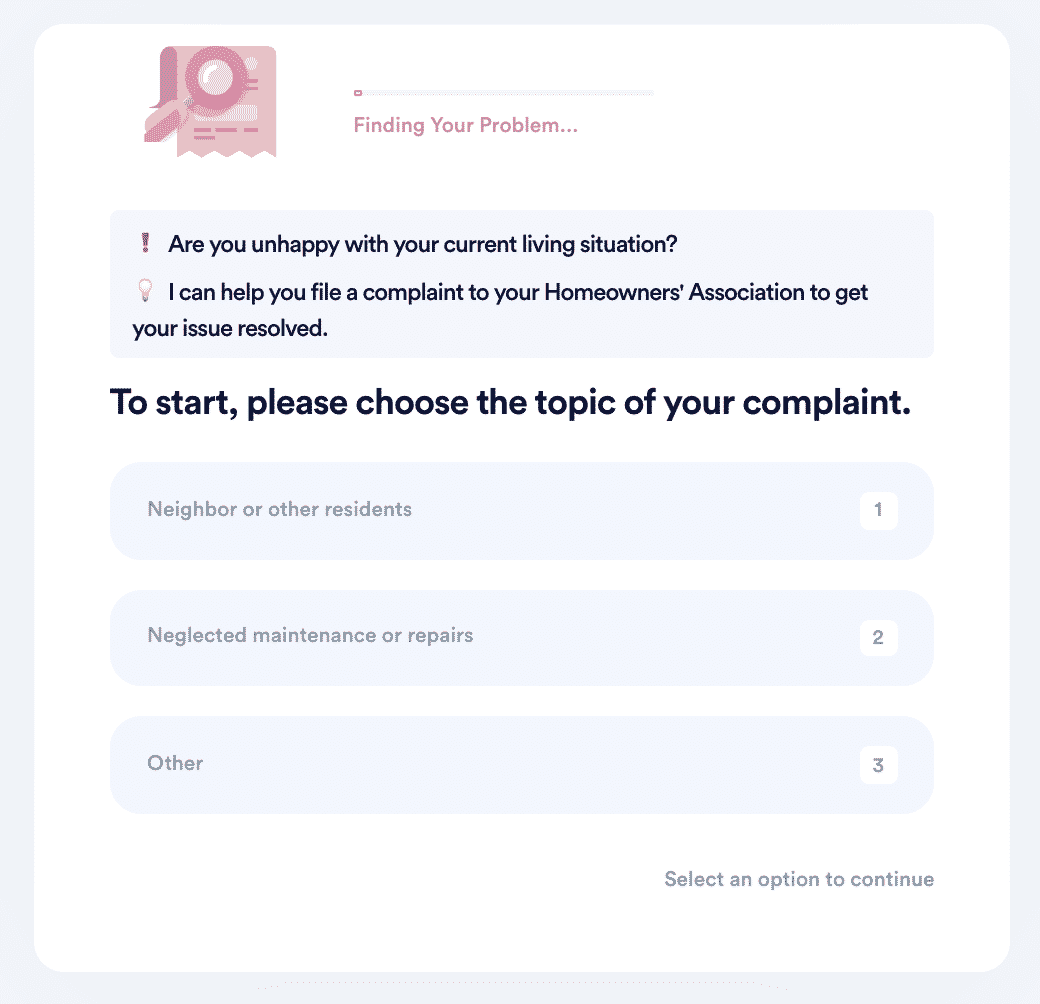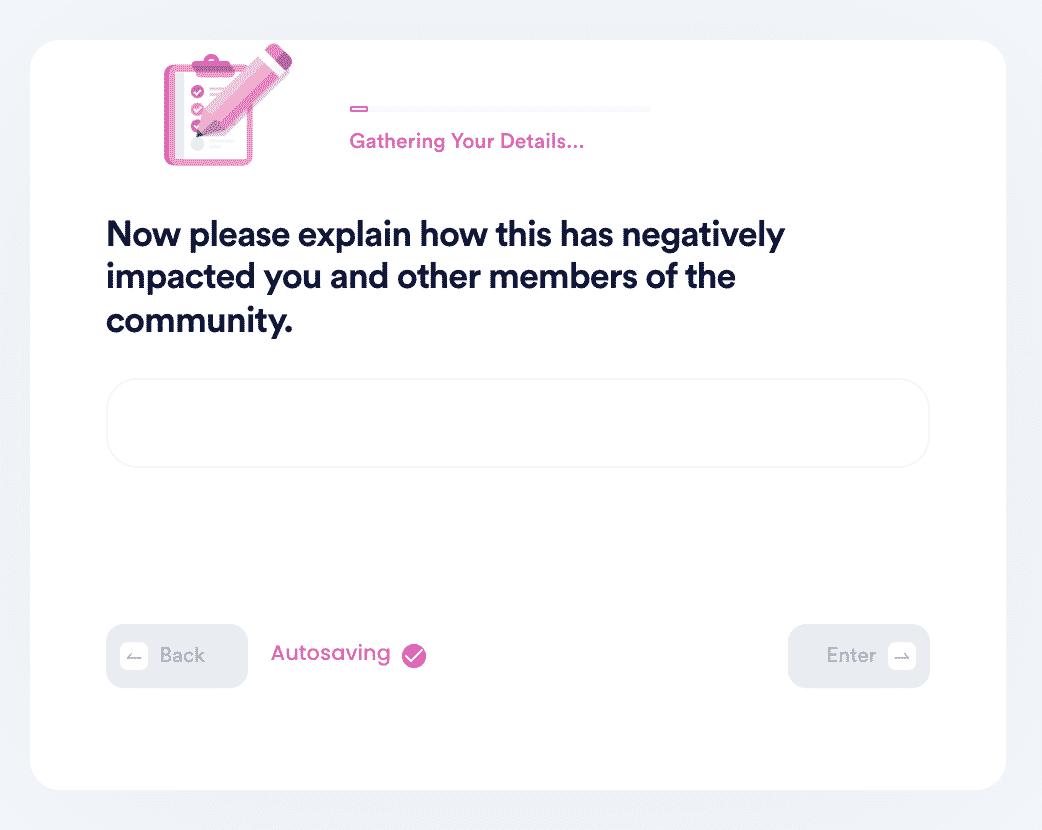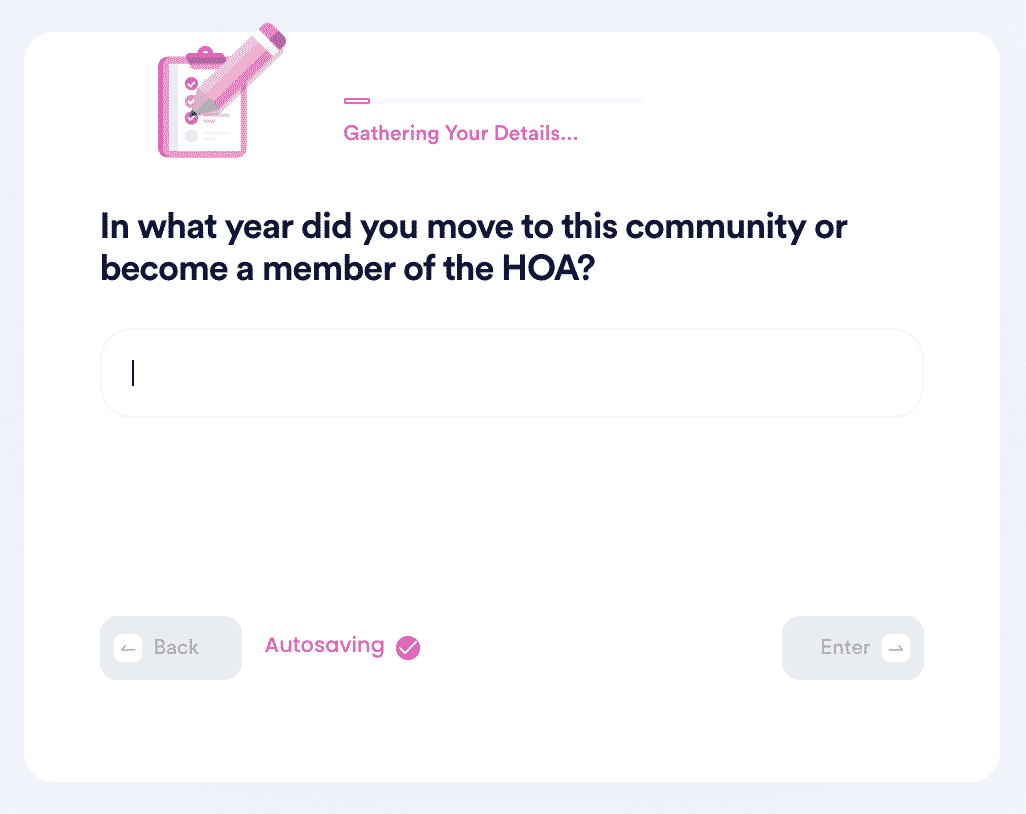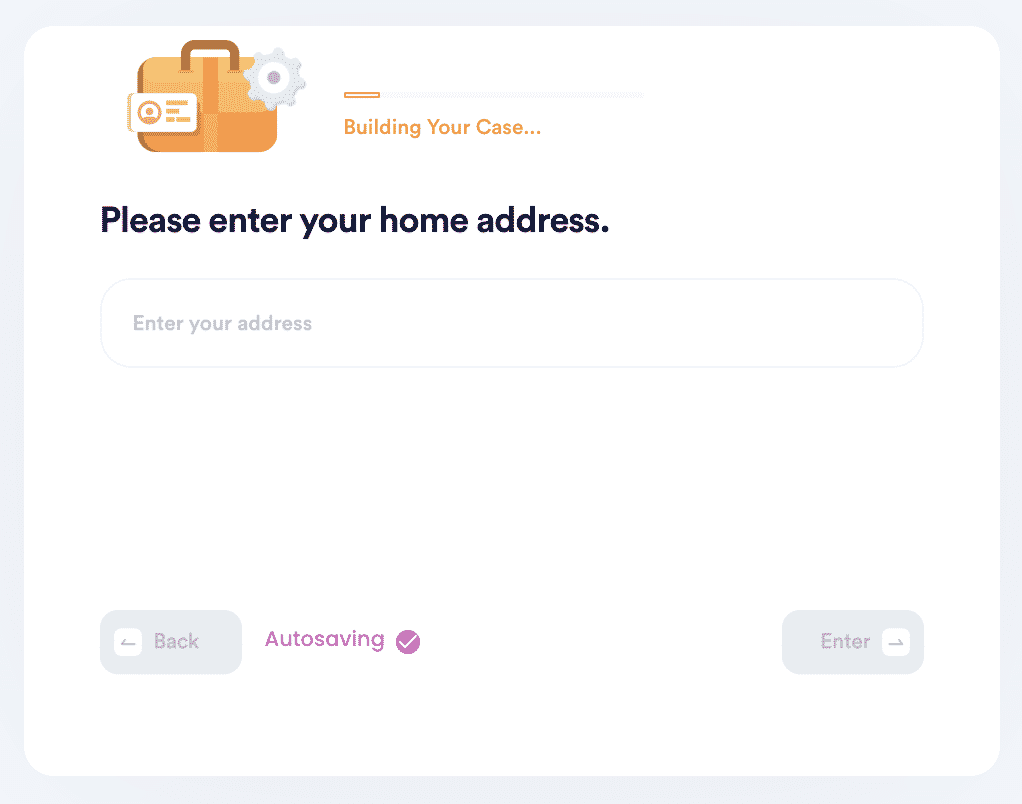How to Fight HOA for Breach of Fiduciary Duty — and Win!
If you live in a planned or common-interest community that has a Homeowners Association (HOA), you are aware that the self-governing organization collects fees to maintain the neighborhood or units. Your HOA is likely run by an elected board of directors who are resident homeowners in the community.
Although they are elected officials, there may still be times when problems arise, particularly because they manage money. If you or a group of homeowners in your community want to , DoNotPay is here to help.
What is Fiduciary Duty?
When the HOA is formed, it must file articles of incorporation with the state. The state's corporation laws will recognize that the HOA's board members are entrusted with the money (collected from dues and/or fines), property, and the daily business of the association. That puts the board members in a position of .
As such, they are responsible for acting in the best interest of the association's homeowners, who have entrusted their confidence and reliance on them. In the case of a homeowners association, the association or board members likely have a fiduciary duty to the member homeowners.
The board member's fiduciary duties will generally involve three core components.
| Duty of Care | This means board members must do their research and make informed decisions. |
| Duty of Loyalty | Board members have a duty to act:
It is also important that they avoid conflict of interest and not make decisions based on personal interests. |
| Duty to Act | Board members have a duty to perform their obligations but are also prohibited from acting on matters or making decisions that are outside the scope of their authority. |
How to File a Complaint Against Your HOA
If you have exhausted efforts dealing directly with your Homeowners Association, you should next find the appropriate county or state office to complain. You can search "State homeowners association complaints" online to find out which agency or agencies accept and investigate complaints against HOAs.
The agency will likely have an online complaint form or a file that you can download and print. You want to include as much pertinent information as possible, including, but not limited to, your name, unit number or address, the name of the HOA and its location, the board members, and all relevant information about your complaint.
Suing Your HOA for Breach of Fiduciary
If you intend to escalate the issue and , you must be prepared.
- Verify through the Covenants, Conditions, and Restrictions (CC&R) that you are allowed to send demand letters to and must not submit to arbitration.
- Verify if you will have to cover the HOA attorney fees if you lose your case. This may be in the CC&R or state statutes.
- Identify how the HOA committed a breach of fiduciary duty and collect your evidence.
- Meet with an attorney to determine if you have a case. They will walk you through the entire process, help you file the appropriate documents, and present your case in the appropriate court of law.
Let DoNotPay Deal with Your HOA the Easy Way
If you are looking into the process and have not yet filed any complaints or taken up the issue with your HOA, you may want to start by filing a complaint. DoNotPay can draft a professional complaint letter on your behalf.
Here’s how to file a complaint with your HOA using DoNotPay:
- Choose and describe the nature of your complaint (neighbors, maintenance, etc).

- Explain how this problem has negatively affected you and how you want the HOA to address the problem.

- Tell us how long you've been a member of this HOA.

- Confirm your home address so we can generate state-specific arguments on your behalf!

That's all! DoNotPay will automatically generate a complaint letter with a two-week deadline for the HOA or its representative to resolve the issue and reach out to you. Then, all you need to do is turn in the letter to the HOA manager or appropriate board member.
We can help with many HOA issues, including:
If you are struggling with unfair fees or fines from your HOA, DoNotPay is also prepared to help you appeal them! Simply use the "Appeal an HOA Fine" product to have DoNotPay mail a demand letter for you. If you do not receive a timely response, DoNotPay can help you send physical demand letters to your HOA demanding action, simply go to our Complaint Letters product.
How Else Can DoNotPay Help Today?
Helping you deal with your HOA is just one of the many problems we can solve. Here are some more:
- Sex Offender Search
- Neighbor Complaints
- Insurance Claims
- Help with Bills
- File a Complaint
DoNotPay has simple, successful solutions to save you time, stress, and money!


